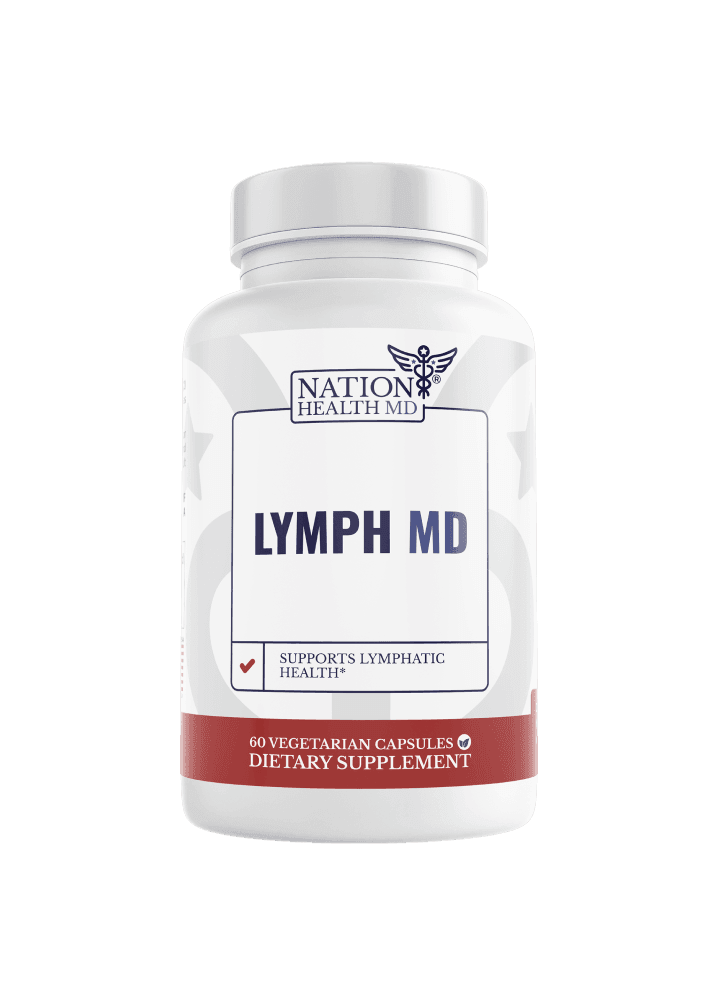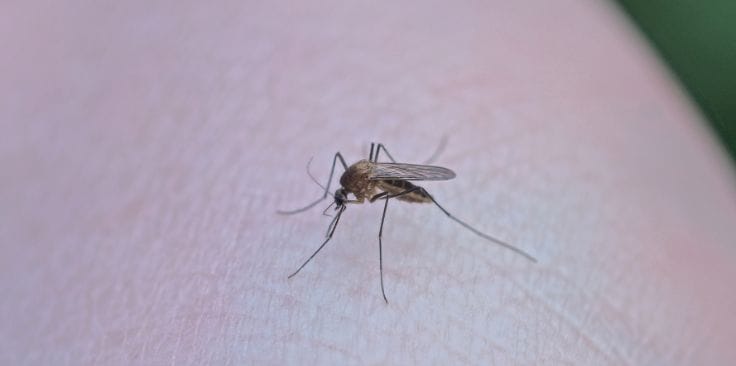10 Worst Foods For The Lymphatic System
Medically reviewed by our experts


The worst foods for lymphatic system function can impact your overall well-being in various ways. Making mindful food choices is crucial as we get older.
This is especially true for foods that can affect our fluid balance and body processes. No single food decides your health. However, the total impact of your food choices greatly affects how you feel each day.
Key Article Findings
- Common pantry staples may actually interfere with your body’s natural processes
- The source and quality of protein choices are more important for supporting body processes than we used to think.
- Several everyday beverages that many consider harmless can affect your body’s fluid balance
Worst Foods for Lymphatic System
1. Processed Foods

Highly processed foods often contain artificial additives and preservatives that can create challenges for natural body processes. Pre-packaged meals, shelf-stable snacks, and convenience foods typically have long ingredient lists with unfamiliar components. The chemical preservatives and artificial colors in these foods do not provide any nutrition. They may also disrupt your body’s natural balance.
Foods to limit:
- Packaged snacks and chips (Often contain refined oils and artificial additives)
- Ready-to-eat frozen meals (Combine excess sodium, preservatives, and poor-quality fats)
- Processed deli meats (Contain nitrates and high sodium levels)
- Pre-made sauces and dressings (Hide sugars and chemical stabilizers)
2. High-Sodium Foods
Foods with excessive salt content can affect fluid balance in your body. Many prepared and packaged foods contain more sodium than you might expect. The average canned soup can contain up to 40% of your daily sodium needs in just one serving.
High-sodium items to moderate:
- Canned soups and vegetables (Often contain excessive sodium for preservation)
- Salty snacks (Can contribute significantly to daily sodium intake)
- Fast food items (Combine multiple concerns including high sodium)
- Condiments and marinades (Pack surprising amounts of salt into small servings)
3. Refined Sugars

White sugar and corn syrup appear in many everyday foods and can affect your body’s natural balance. These ingredients often hide in unexpected places, making them particularly challenging to avoid. They provide no nutritional value while potentially interfering with your body’s natural processes.
Common sources to watch:
- Soft drinks and sweetened beverages (A single can may exceed daily sugar limits)
- Breakfast cereals (Often market as healthy while containing high sugar content)
- Baked goods (Major source of hidden sugars)
- Flavored yogurt and granola bars (Often contain significant added sugars)
4. Trans Fats
Trans fats, often listed as “partially hydrogenated oils” on labels, can impact your body’s natural processes. Scientists created these artificial fats to extend shelf life, but they may interfere with normal body functions. While many countries have banned artificial trans fats, some products still contain them.
Foods that often contain trans fats:
- Commercial baked goods (Used for texture and preservation)
- Some margarines (Especially older formulations)
- Packaged snack foods (May still use trans fats in some regions)
- Fast food items (Particularly in fried foods)
5. Dairy Products

Some individuals find that dairy products can affect their body’s natural processes. Full-fat dairy products, in particular, may present challenges for some people. The modern dairy industry makes dairy consumption more complex. This is why plant-based alternatives can be a healthier choice for your lymphatic system.
Beneficial plant-based alternatives:
- Almond milk (Light, nutty option rich in vitamin E)
- Oat milk (Offers creamy texture and natural sweetness)
- Coconut milk (Adds richness to both beverages and cooking)
- Plant-based yogurts (Provide beneficial cultures without dairy)
6. Red Meat
Regular consumption of red meat, especially fattier cuts, may influence natural body processes. The quality and source of meat are very important. Cattle raised in conventional ways often get substances that can affect your body.
Alternative protein sources:
- Fish (Rich in beneficial omega-3 fatty acids)
- Poultry (Provides lean protein options)
- Legumes (Combine protein with beneficial fiber)
- Plant-based proteins (Offer complete nutrition with phytonutrients)
7. Alcohol

Regular alcohol consumption may affect your body’s hydration levels. The impact grows more important as we get older. These drinks can affect our bodies more as time goes on. Drinking alcohol can greatly affect fluid balance and body processes. Regular use may even cause a hangover.
During a hangover, your body faces multiple challenges related to natural processes. A hangover state often involves inflammation throughout the body, which may impact natural cleansing processes. Additionally, your body diverts energy toward processing the alcohol rather than maintaining regular functions.
8. Gluten-Containing Grains
Some individuals may find that gluten-containing foods affect their well-being. Being mindful of your body’s response to these foods can be helpful, as sensitivity can develop at any age. The modern wheat industry’s practices have led to higher gluten content than historical varieties.
Nutritious alternatives:
- Quinoa (Offers complete protein and beneficial minerals)
- Rice (Provides a versatile, easily digestible option)
- Certified gluten-free oats (Maintain nutritional benefits)
- Buckwheat (Rich in minerals despite its misleading name)
9. Artificial Sweeteners

These sugar substitutes may affect your body’s natural processes. Many “diet” or “sugar-free” products contain these ingredients under the guise of being healthier alternatives. Research suggests these substances may have their own set of concerns regarding body processes.
10. Conventionally Raised Meats
Mass-produced meats may contain residues that can affect natural body processes. The industrial farming system often prioritizes rapid growth over quality, using various substances to achieve this goal.
Better choices include:
- Organic poultry (Must meet strict standards)
- Grass-fed beef (Contains a better nutrient profile)
- Wild-caught fish (Often provides better quality fats)
- Free-range eggs (Typically offer improved nutritional content)
Signs of a Poorly Functioning Lymphatic System
Your body may signal when natural lymphatic processes aren’t working optimally. Being aware of these signs can help you make informed choices:
- Mild swelling in arms or legs
- Feeling tired more often
- Skin changes
- Morning puffiness
- Stiffness after sitting
Foods That Support Lymphatic Health
Including supportive foods in your diet can make a positive difference. These foods work together to support your body’s natural lymphatic processes:
- Dark leafy greens
- Colorful berries
- Citrus fruits
- Seeds and nuts
- Fresh herbs
- Water-rich vegetables
While dietary choices form the foundation of wellness, some people choose to add natural supplements to their daily routine. Lymph MD from Nation Health MD offers a blend of traditional botanical ingredients selected for their supportive properties.
Lisa King, RPh, is a registered pharmacist with a lot of experience in natural wellness. She says the formula has natural ingredients that are well-researched, like dandelion leaf extract, burdock root, and echinacea. The supplement also contains bromelain, cleavers extract, and rutin from Sophora japonica flower buds.
Additional components include lemon peel powder and seaweed extract, chosen for their natural properties. These ingredients work together to support the body’s natural processes while complementing a healthy diet and lifestyle.
Lifestyle Tips for a Healthy Lymphatic System
Supporting your body’s natural processes extends beyond food choices. These daily practices can make a difference:
- Stay well-hydrated with clean water throughout the day
- Take regular walks, especially after long periods of sitting
- Practice gentle stretching to support natural movement
- Take breathing breaks during sedentary activities
- Get adequate rest to support natural processes
- Maintain good posture during daily activities
Conclusion
Making informed food choices plays a vital role in supporting your body’s natural processes. Start by gradually reducing your intake of potentially problematic foods while increasing beneficial ones. Listen to your body’s signals and adjust your choices accordingly. Small, consistent changes often lead to the most sustainable improvements in how you feel.
Pay attention to how different foods affect your well-being and adjust your diet accordingly. Focus on whole, minimally processed foods while limiting those that may interfere with your body’s natural processes.
Coffee in moderation (1-2 cups daily) can be part of a balanced diet. However, coffee can affect hydration. Make sure to drink plenty of water during the day to help your body.
Support your body’s natural processes through regular movement, proper hydration, and whole foods. Include water-rich vegetables, maintain consistent physical activity, and practice deep breathing while limiting processed foods.
Warm water can support natural body processes and hydration. Consider starting your day with warm water and lemon. Staying well-hydrated, regardless of water temperature, supports overall wellness.
Lane, M. M., Et Al. (2024). Ultra-processed food exposure and adverse health outcomes: umbrella review of epidemiological meta-analyses. BMJ, e077310.
Agócs, R., Et Al. (2019). Is too much salt harmful? Yes. Pediatric Nephrology, 35(9), 1777–1785.
Rippe, J., & Angelopoulos, T. (2016). Relationship between Added Sugars Consumption and Chronic Disease Risk Factors: Current Understanding. Nutrients, 8(11), 697.
Dhaka, V., Et Al. (2011). Trans fats—sources, health risks and alternative approach – A review. Journal of Food Science and Technology, 48(5), 534–541.
Ramsing, R., Et Al. (2023). Dairy and Plant-Based Milks: Implications for Nutrition and Planetary Health. Current Environmental Health Reports, 10(3), 291–302.
Clinic, C. (2024). Is red meat bad for you? Cleveland Clinic.
Swift, R., & Davidson, D. (1998). Alcohol hangover: Mechanisms and mediators.
Rd, J. K. M. (2024). Is gluten bad for you? A critical look. Healthline.
Sharma, A., Et Al. (2016). Artificial sweeteners as a sugar substitute: Are they really safe? Indian Journal of Pharmacology, 48(3), 237.
Roth, E. (2023). Lymphatic dysfunction (Lymphedema). Healthline.
Lymphedema and nutrition: A review | Veins and Lymphatics. (n.d.).
Bonetti, G., Et Al. (2022). Dietary supplements in lymphedema. PubMed, 63(2 Suppl 3), E200–E205.
Popular Articles
Advertisement. This site offers health, wellness, fitness and nutritional information and is designed for educational purposes only. You should not rely on this information as a substitute for, nor does it replace, professional medical advice, diagnosis, or treatment. If you have any concerns or questions about your health, you should always consult with a physician or other health-care professional. Do not disregard, avoid or delay obtaining medical or health related advice from your health-care professional because of something you may have read on this site. The use of any information provided on this site is solely at your own risk.













